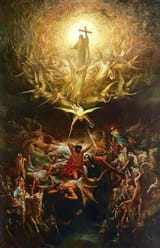>>17907971Not bait at all. I go to an Adventist church.
The Bible constantly, almost whenever it talks about death, refers to it as sleep. This is the constant description. So what's the logical comparison to the experience of death? The experience of sleep. Which is non-experience.
And what does the Bible say the only time it explicitly and directly discusses the experience of death, in Ecclesiastes 9? It says that the dead don't know or do anything.
Now look at the physical evidence. The brain is what generates your emotions, memory, and experience. Damage to the brain can remove emotions, memories, and even your very ability to experience (like with a coma).
If brain damage is mild you are knocked out, if it's severe you go into a coma, and if it's extreme you die. The logical view is that just as being knocked out and being in a coma are the same: non-experience, so too is death.
We know for a fact that everything people have a fantasy of their relatives doing "in heaven" without bodies after their death like remembering their relatives are things that come from your brain. We can physically detect where things like memories of relatives are stored in your brain like they were data on a hard drive, and damage to such areas can make you forget who your relatives even are.
This notion of an afterlife immediately in a golden realm it a fantasy holdover from Hellenistic philosophy that didn't have the first clue what a brain was or what it did, and thought an immaterial spirit was where human knowledge and memory was stored.
If you look at the Bible, it directly and routinely contradicts such a notion. Biblically, death is unconsciousness, just like our modern understanding of what the brain is would tell us.

